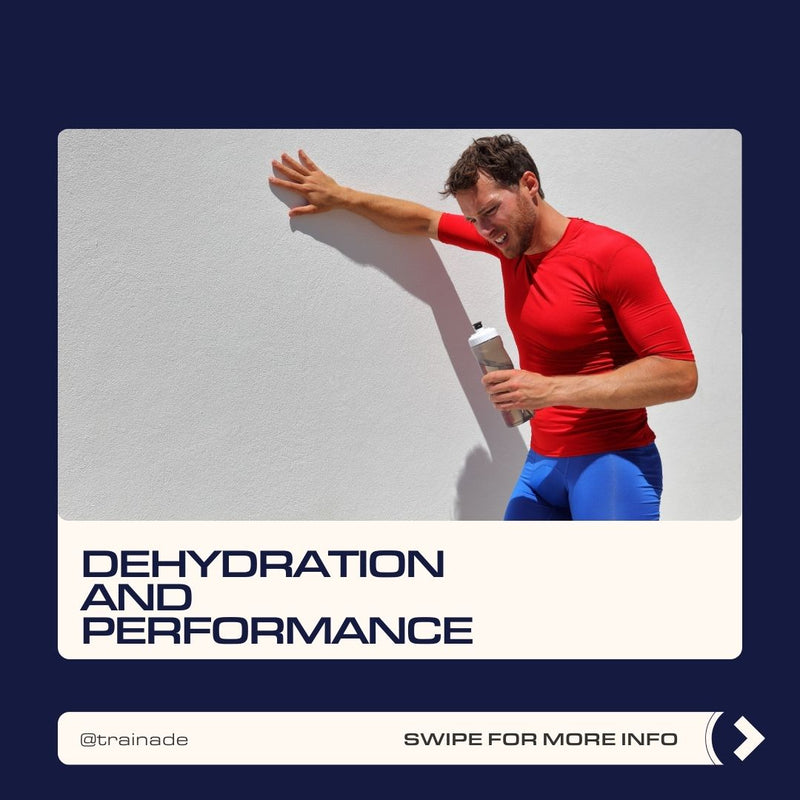Written by Damien Cox - Accredited Practising Dietitian
It is well understood that being hydrated can help with our overall health. We’ve all been told to stay hydrated and drink water, however what happens if we are dehydrated before or during exercise? Can it impact performance and if so, how much?
Water accounts for 50-80% of our body weight depending on the amount of lean body mass (LBM) someone has [1]. On average men have a higher amount of LBM when compared to women and thus a higher percentage of their body mass as water. Fluid requirements differ for each individual which can be dependent on multiple factors including:
- Gender
- Age
- LBM amount
- Exercise type and duration
- Environment ie hot or cold environments
- Overall health
- Heavy sweater
So what if we don’t drink enough water, is it such a bad thing?
If you don’t drink enough water your body won’t function as best as it could. This can include [2]:
- Feeling more fatigued than usual
- Impaired decision making
- Increased body temperature
- Impaired body functions ie delayed gastric emptying
This is highlighted even greater during exercise. Hydration and exercise has been covered broadly in the literature [3-6]. The impact of dehydration and how it negatively affects performance has been shown in both aerobic (running, cycling, football, combat sports) and anaerobic (bodybuilding, HIIT, power lifting) sports and training.
Dehydration impacts performance by [5]:
• Creating stress on the cardiovascular system (heart, blood pressure etc)
• Reducing physical capacity (strength, power, endurance)
• Increasing the risk of injury
The research has shown by losing >2% of your body weight can negatively impact exercise performance [6]. For example, if someone weighs 60kgs and is at risk of losing 1.2kgs (2% of body weight) of fluid during exercise this can negatively impact their performance.
It can be difficult to predict that loss before exercise as you don’t really know how much fluid you’re going to lose from each exercise session. As said before multiple factors can impact on your fluid requirements.
To minimise the impact of dehydration on exercise try and be hydrated before you start exercise. Drinking enough fluids related to your body, exercise and environmental factors is the best way to ensure you enter your activity hydrated. In situations where dehydration is likely ie marathon competition in a hot environment, drinking to recommended guidelines by a professional (ie dietitian/sports dietitian) will decrease the impacts of dehydration and its negative effects. However, when dehydration is unlikely ie 30 minute run in a cold environment, drinking to thirst is recommended for exercise performance [7].
Reference List:
1. https://www.nrv.gov.au/nutrients/water 2. https://www.betterhealth.vic.gov.au/health/healthyliving/Exercise-the-low-down-on-water-and-drinks
3. doi: 10.2478/hukin-2021-0065
4. doi: 10.1519/JSC.0b013e3181635ba5
5. doi.org/10.2165/00007256-200737100-00006
6. doi.org/10.1123/ijsnem.2018-0374
7. doi: 10.5604/20831862.1208485



